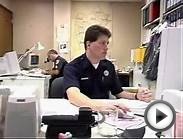 Police detectives and criminal investigators work to apprehend lawbreakers, investigate criminal cases and solve crimes. They may work for local, state or federal agencies, enforcing different aspects of the law. Completing a bachelor’s degree in criminal justice can be the first step toward a detective or criminal investigator career.
Police detectives and criminal investigators work to apprehend lawbreakers, investigate criminal cases and solve crimes. They may work for local, state or federal agencies, enforcing different aspects of the law. Completing a bachelor’s degree in criminal justice can be the first step toward a detective or criminal investigator career.
Job Outlook
The U.S. Bureau of Labor Statistics (BLS) projects that employment of detectives and criminal investigators nationwide will grow in coming years. Job growth will occur as the population expands and the demand for trained law enforcement specialists increases. Competition for jobs is expected to be greater in state and federal agencies compared with local police departments. Bilingual candidates with a college degree, military service or law enforcement experience – especially investigative expertise – should enjoy the best prospects.
Detective and Criminal Investigator Job Duties
Criminal investigators and detectives – sometimes referred to as agents or special agents – gather facts for crime investigations. They compile evidence by observing suspects, interviewing witnesses and suspects, and examining physical evidence. If there is sufficient evidence, they will formally charge a suspect with a crime. Detectives and criminal investigators often participate in arrests or raids. These law enforcement professionals usually specialize in different crimes, such as homicide, drug trafficking or fraud.
Detectives and criminal investigators must keep thorough records of investigations and maintain all pertinent documents. Preparing reports that detail their findings is a significant part of their work duties, as is collaborating with other departments and agencies to compare and exchange information. Additional aspects of this profession include determining the scope, timing and direction of criminal investigations, and testifying in court or before grand juries.
Depending on the agency, a detective or criminal investigator may work in environments ranging from an office to a city street. Travel may be required, particularly for federal and state agency jobs. Whether on- or off-duty, detectives and criminal investigators are expected to exercise their authority if necessary.
Potential Salary for Detectives and Criminal Investigators
Police academy training may take from 12 to 14 weeks. Candidates must be U.S. citizens, meet specific age requirements, and have acceptable hearing, vision, agility and strength to be eligible for acceptance. Written examinations, relevant experience and education are usually considered by police academies when evaluating applicants for admission.
Individuals who wish to pursue police detective or criminal investigator work are usually required to undergo a background investigation and pass a physical fitness test. Some agencies also have mandatory drug testing.
Source: www.floridatechonline.com
You might also like:



Related posts:
- Detectives Beyond Borders
- Detectives crossword
- Detectives in Togas
- Detectives and Doctors
- Private Detectives and Criminal Investigators
























Earn a college degree in a criminal justice field. Apply for a license following your state's regulations. Apply in a firm that hires detectives.